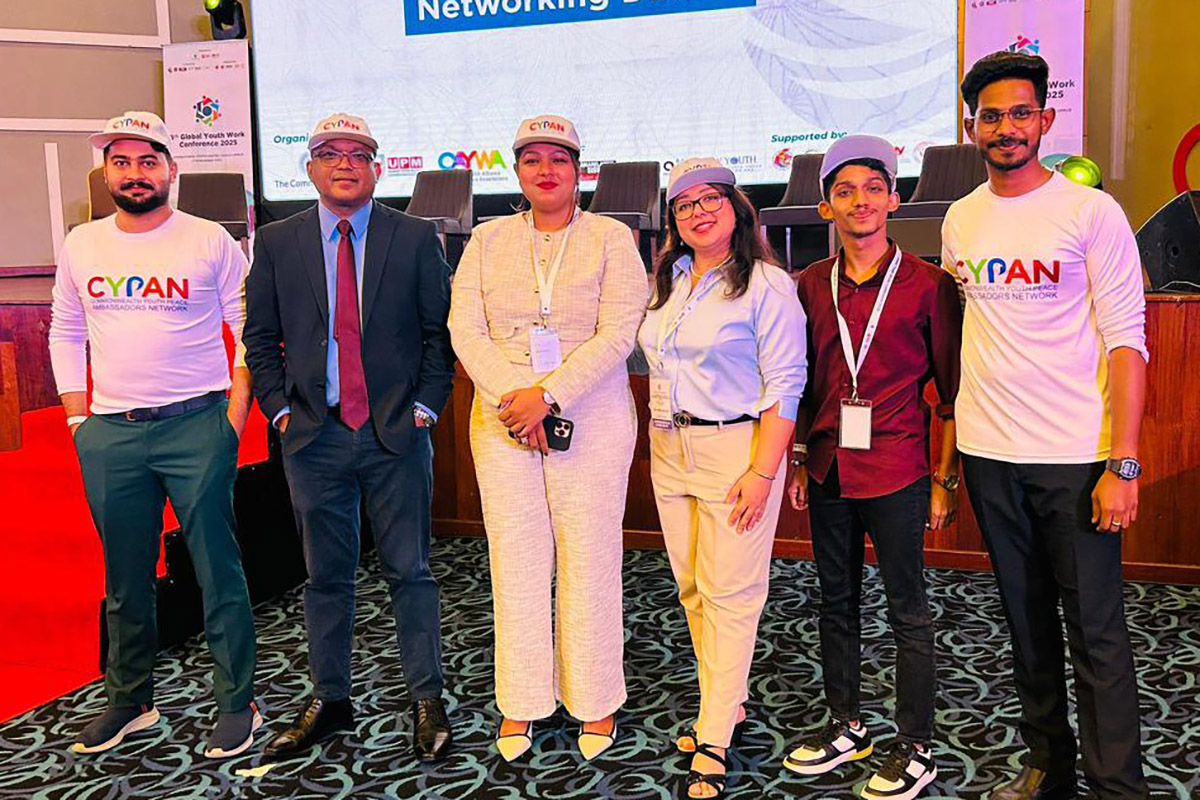“It’s time to support action on nutrition !”
April 28 Malnutrition is defined as undernourishment as well as over-nutrition that may lead to obesity and non-communicable diseases, writes Monica Islam, 26, a Commonwealth Correspondent from Dhaka in Bangladesh. The UN has declared a Decade of Action on what has been called “the silent development crisis”.
Malnutrition is defined as undernourishment as well as over-nutrition that may lead to obesity and non-communicable diseases, writes Monica Islam, 26, a Commonwealth Correspondent from Dhaka in Bangladesh. The UN has declared a Decade of Action on what has been called “the silent development crisis”.
Since malnutrition is a pervasive multi-sectoral issue, it is described as the “silent development crisis” by the United Nations Global Nutrition Agenda 2015. Only last year, the United Nations (UN) General Assembly declared the period 2016-2025 as the UN Decade of Action on Nutrition. The six global nutrition targets identified by the World Health Assembly Resolution focus on Maternal, Infant and Young Child Nutrition: stunting; anemia; low birth weight; childhood obesity; childhood emaciation; and breastfeeding.
In Bangladesh, 2016 marked the year in which the five-year-long government-led Health Population and Nutrition Sector Development Program (HPNSDP) ended. This was the third sector-wide program for the overall improvement in health, population, and nutrition sub-sectors, with two similar programs, in 1998 to 2003 and in 2003 to 2011.
The Ministry of Health and Welfare of Bangladesh asserts that this program, through the National Nutrition Services, reduced malnutrition and micro-nutrient deficiencies by mainstreaming nutrition within the regular services of the Directorate General of Family Planning and Directorate General of Health Services for countrywide coverage. The four nutrition-specific services provided were: education on nutrition; screening for malnutrition; distribution of oral rehydration salt and folic acid and iron supplementation; and observing the nutritional needs of mother and child in the first 1,000 days post-pregnancy.
The Bangladesh government also enacted the National Food Policy (NFP) Plan of Action (PoA) 2008-2015. The NFP-PoA Monitoring Report reveals the following successes: an improvement in dietary diversity including reduction of over-dependence on cereals as the primary source of energy intake; a decline in chronic energy deficiency among women; and an improvement in children’s health due to breastfeeding, timely provision of semi-solid foods, and hand-washing before feeding.
In 2011, Bangladesh joined the Scaling Up Nutrition (SUN) movement, which unites government and non-government actors globally in the fight against poor nutrition. International development partners have taken this as an opportunity to “accelerate progress in nutrition.”
United States Agency for International Development (USAID) provided financial support under the National Food Policy Capacity Strengthening Program. It also operated several nutrition-based projects such as Strengthening Partnerships, Results, and Innovations in Nutrition Globally (Project SPRING), and supported the Civil Society Alliance for Scaling Up Nutrition in Bangladesh.
UN agencies such as the Food and Agricultural Organization provided technical assistance to the National Food Policy. It contributed to an established Nutrition Working Group, a network of UN agencies, bilateral donor agencies, and civil society partners collaborating on nutrition-based projects. The agencies also signed the “Meeting the Under-Nutrition Challenge (MUCH)” agreement to assist the government in developing and implementing effective food and nutrition policies.
In an example of continuing action on malnutrition, on March 21, 2017 the government of Bangladesh approved the fourth HPNSP (2017-2022) with a special focus on non-communicable diseases such as cancer and diabetes, and improvements in health governance.
The HPNSP recognizes health as a multi-sectoral issue. Bangladesh cannot achieve its nutrition-related targets without accomplishing efficiency and effectiveness in other sectors, such as education and livelihood.
The government is set to provide 84 per cent of the HPNSP budget, up from the previous 40 per cent contribution, while international development partners will support the remainder by disbursing funds only after the specified performance indicators have been met.
The local hospitals will maintain a registry to “generate data for better decision-making”.
Most of the health and nutrition goals are interrelated. Hence, a sector-wide approach was taken. With this approach, a package of essential health services are integrated and delivered. A Financial Express article states that this results in less duplication of efforts and wastage of resources. However, as the 66th World Health Assembly report on the Prevention and Control of Non-Communicable Diseases asserts, “despite the close links, one action plan to address all of them in equal detail would be unwieldy.” Hence, we need to restart independent health projects based on a single disease (e.g. malaria) or issue (e.g. nutrition). Instead of looking at these as duplication and wastage, we could view them as positive reinforcement needed to remind medical consumers.
When government agencies state that they want to build a registry, they need to indicate the specific issue and the supporting technology.
Bangladesh has witnessed many health successes. It has met the Millennium Development Goal targets on reducing under-five mortality rate and hunger. However, challenges remain as we look forward to the Sustainable Development Goals. Nancy Walters, Global Coordinator REACH/UN Network for SUN commented: “No single government, no single organisation, no single intervention, can alone achieve the goal of ending global malnutrition. It is only through working together on all fronts that we will realize a world where no one suffers from malnutrition.”
Note: This is an abridged version of a longer essay that was accepted as part of the University of Central Lancashire’s postgraduate admission process.
Photo credit: htomren Saturday shopping 11/19/16 via photopin (license)
…………………………………………………………………………………………………………………
About me:
Just another writer-journalist waiting for a major break-through. I identify as a global citizen, but by birth, I am Bangladeshi – if this makes it any easier for you to talk to me. I read almost anything and everything. My interests are in the areas of health, education, sustainable development, and the leisure industry.
 …………………………………………………………………………………………………………………
…………………………………………………………………………………………………………………Opinions expressed in this article are those of the author and do not necessarily represent the views of the Commonwealth Youth Programme. Articles are published in a spirit of dialogue, respect and understanding. If you disagree, why not submit a response?
To learn more about becoming a Commonwealth Correspondent please visit: http://www.yourcommonwealth.org/submit-articles/
…………………………………………………………………………………………………………………






